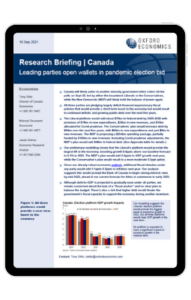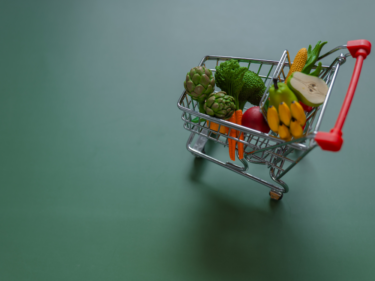Canada | Leading parties open wallets in pandemic election bid

Canada will likely usher in another minority government when voters hit the polls on Sept 20, led by either the incumbent Liberals or the Conservatives, while the New Democrats (NDP) will likely hold the balance of power again.
What you will learn:
- All three parties are pledging largely deficit-financed expansionary fiscal policies that would provide a short-term boost to the economy but would result in continued deficits and growing public debt over the next five years.
- The Liberal platform would add about $70bn to federal debt by 2025-2026 with promises of $78bn in new expenditures, $26bn in new revenues, and $15bn allocated for Covid prudence. The Conservatives’ plan would increase debt by $54bn over the next five years, with $60bn in new expenditures and just $9bn in new revenues.
- Our preliminary modelling shows that the Liberal’s platform would provide the largest lift to the economy, boosting growth 0.6ppts above our baseline forecast to 5.1% in 2022.
Tags:
Related Services

Post
Food prices to bottom out in 2024, risks skewed to upside
Our baseline forecast is for world food commodity prices to register an annual decline this year, in aggregate, reducing pressure on food retail prices further downstream. However, we believe the risks to this forecast are overwhelmingly skewed to the upside.
Find Out More
Post
Battery raw material prices to recover
Battery raw materials prices bottomed out last quarter and we think a sustained recovery is looming. Midstream EV battery manufacturing activity has picked up again and inventories have returned to historical levels, suggesting upstream demand for raw materials will also bounce back.
Find Out More